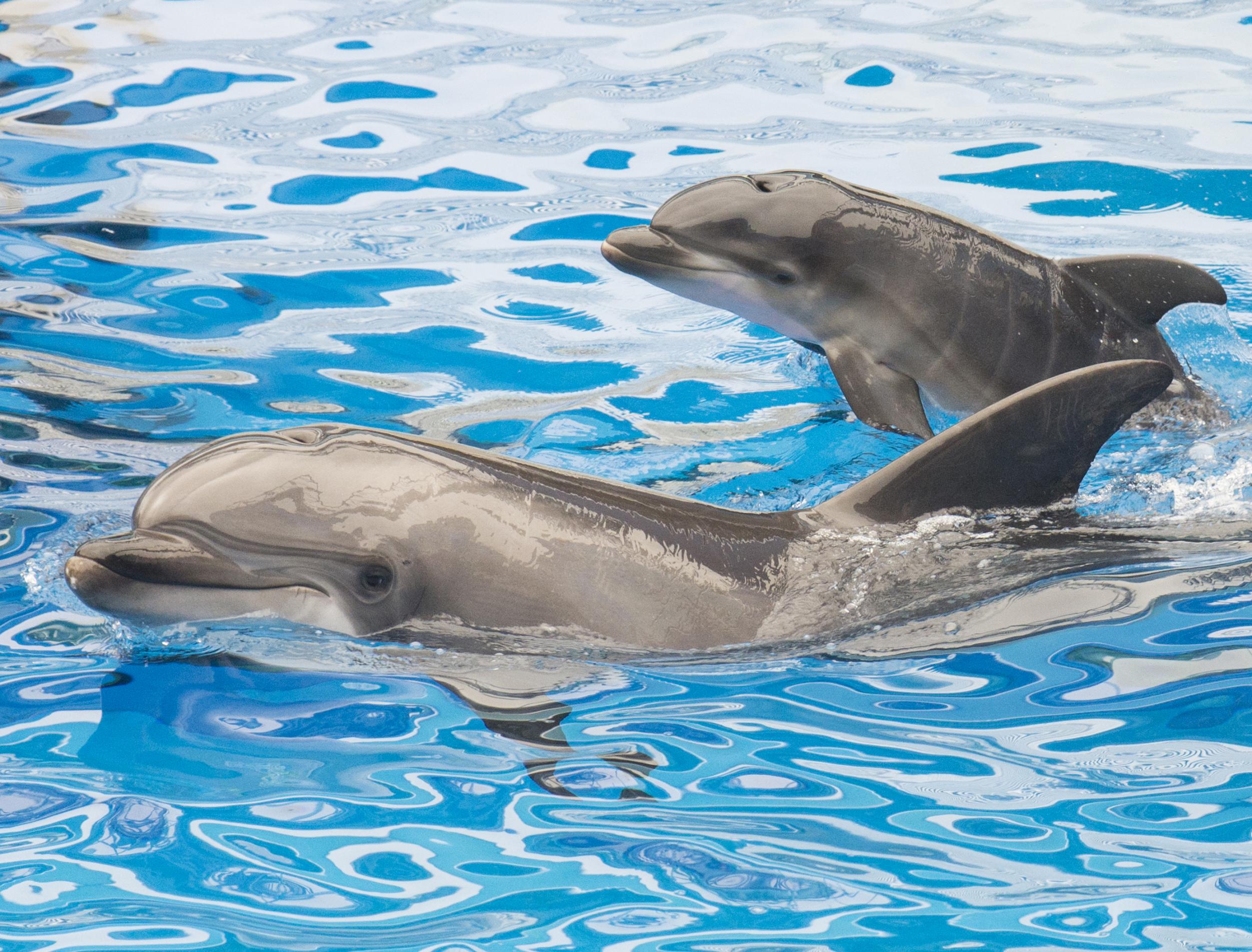Dolphins' immune systems are failing due to polluted oceans
First study to compare wild and captive dolphins found that animals living in aquariums are healthier

Wild dolphins have weaker immune systems than captive dolphins because of polluted sea water, a study has found.
Researcher`s compared the immune health of four groups of bottlenose dolphins living in aquariums and off the coast of America.
Pollutants in the oceans around Florida and South Carolina were found to be putting a strain on the wild dolphins' immune systems, making it more difficult for the animals to fight off bacteria, fungi, viruses, and parasites.
Wild dolphins' immune systems appeared to be "chronically activated" as a result of the unhealthy environments they were living in, said the study's lead author Patricia Fair, a research professor at the Medical University of South Carolina.
“This is likely a result of encountering and fighting off illness caused by pathogens, parasites and anthropogenic pollutants in the ocean that do not exist in closely managed zoological habitats,” she explained.
“The key to a healthy immune system is a balance between being able to recognise harmful organisms and over-stimulation and this study demonstrates the importance of the environment in these responses.”
Dolphins living in the ocean near Charleston, South Carolina were exposed to the highest levels of industrial pollution, and suffered more disease as a result.
Because dolphins are high on the food chain, they accumulate any toxins ingested by their prey, the researchers said. Industrial pollutants released into the water accumulate in micro-organisms, these are eaten by fish, which are in turn eaten by dolphins. At each step up the food chain the toxins become more concentrated.
The researchers suggested the findings of the dolphin study could have implications for human health in the area too, as local fishermen and residents are exposed to and consume the same toxins
Meanwhile, large amounts of toxic mercury were found in dolphins living in the Indian River Lagoon in Florida.
Doctor Gregory Bossart, a co-author of the study and chief veterinary officer at Georgia Aquarium, said the implications of chronic immune system activation in wild dolphins could be severe.
"In humans, this type of prolonged smouldering inflammation is associated with cancer, auto immune disease, cardiovascular disease, and increased vulnerability to infectious disease,” he said.
By comparison, the dolphins kept in the Georgia Aquarium in clean water had healthier immune systems which appeared to be under a lot less stress, Dr Bossart said.
“Dolphins in human care are exposed to fewer pathogens because of environmental controls of water and food quality and preventative medical programmes. Thus, their immune responses tend to be more focused and short acting. Our findings suggest that the wild dolphins of our study have immune systems that are chronically activated and challenged."
He added: “These wild dolphins are trying to tell us something and we are not listening. As a sentinel species, dolphins are an important way to gauge the overall health of our oceans. If wild dolphins aren’t doing well, it could also indicate future impacts to ocean health and even our own health.”
Join our commenting forum
Join thought-provoking conversations, follow other Independent readers and see their replies
Comments
Bookmark popover
Removed from bookmarks